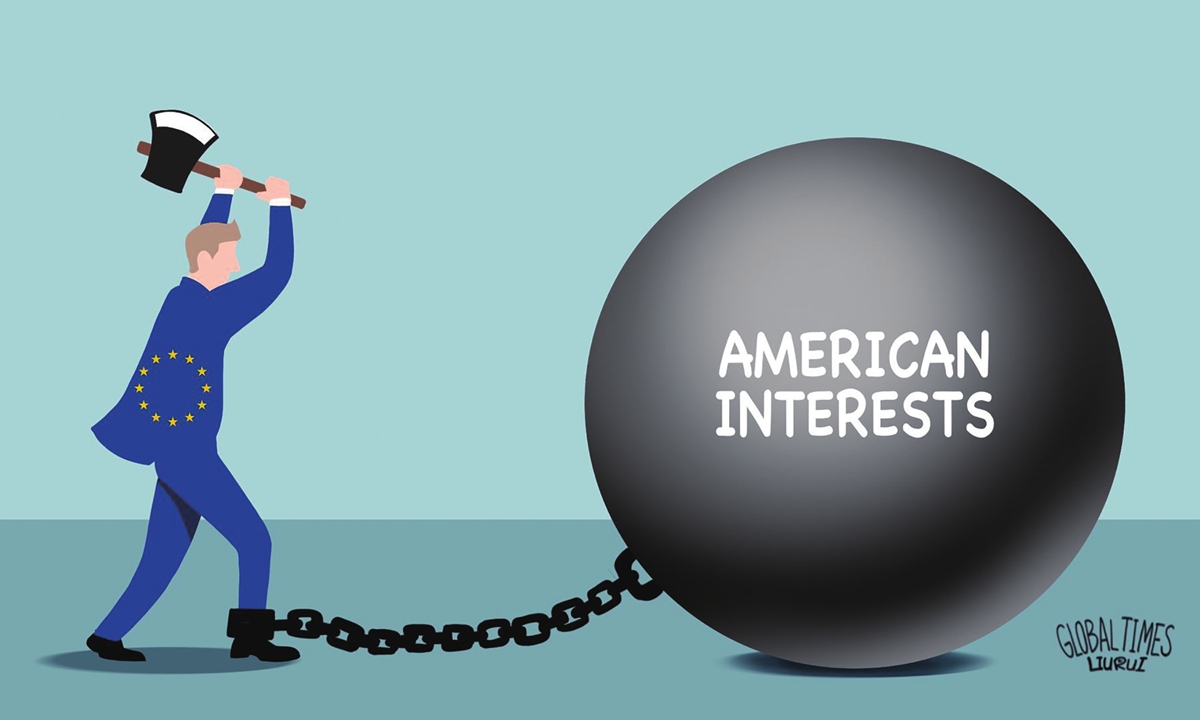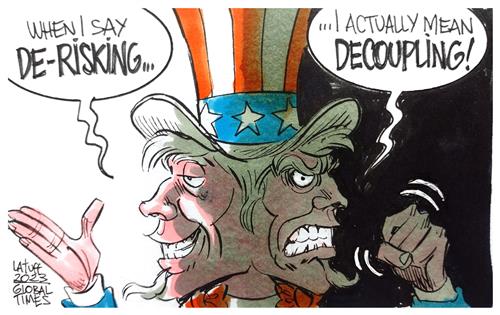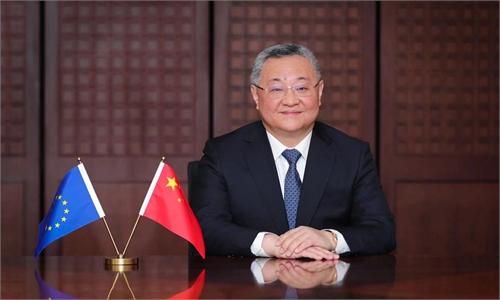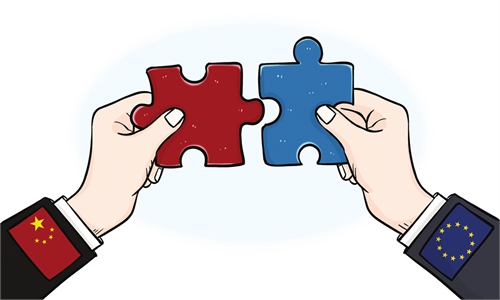
Illustration: Liu Rui/GT
The EU is scheduled to unveil an economic security strategy on Wednesday "to shield key technology from China," Bloomberg reported on Monday. While the US government is abusing the concept of "economic security" and pressuring its allies to participate in its semiconductor war against China, it is concerning that the EU's economic security strategy may be subject to the US influence.Brussels' economic security strategy is borrowing a concept from the US and Japan, with no less than five initiatives covering investment, export controls and other factors that may follow the footsteps of the US government's arbitrary actions to restrict investment and exports in certain technology areas, according to a report by the Politico.
After the US pressured the Netherlands to impose restrictions on exports of Dutch chip equipment supplier ASML to China, calls have grown for an EU-wide approach, the Politico said.
It should be pointed out that the EU's economic security strategy seems bearing some clear hallmarks of the US government, which is in fact not conducive to EU's strategic autonomy and economic security.
The US, driven by malicious intentions to stymie China's chip industry, is pressuring European countries to impose similar restrictions on European chip equipment exports to China. This will definitely undermine European interests. The issue Europe faces is not Bloomberg's so-called "shielding key technologies from Chinese influence." It is about maintaining economic policy autonomy and protecting European companies' interests from the harm caused by the US' reckless chip war.
In March 2023, the President of the European Commission, Ursula von der Leyen proposed the concept of "de-risking" in her speech on Europe's strategy toward China. In June 2023, the European Commission brought up the "European Economic Security Strategy," and this week, it plans to unveil the "European Economic Security Package." Europe has been increasingly moving toward "de-risking," but there are concerns that the EU compromising to the US pressure will further undermine trade and economic cooperation with China.
In the current global economic downturn, the damage caused by the US chip war to the global chip industry is becoming increasingly apparent. Europe should fully utilize the complementarity of its economic and trade relations with China, promote mutually beneficial cooperation, and handle competition properly, instead of allowing some politicians to push for actions that may further harm EU-China economic and trade cooperation, which have been mutually beneficial for many years. Such actions will inevitably harm the economies of both sides and will only benefit the US in the end.
As the US is intensifying its economic and tech containment targeting China, it is unwise for the EU to jump onto the US government's' geopolitical bandwagon and gambit.
The economies of China and Europe have a high degree of complementarity. Both sides should strengthen the complementarity of markets, capital, and technological advantages, promote the upgrading of traditional industries and the development of emerging industries, explore new models of cooperation, create new growth points, and work together to improve their shared industrial and supply chains.
There are still major differences among EU member countries regarding "de-risking." The European business community is generally concerned that "de-risking" toward China will harm their interests in the Chinese market. Hopefully, EU policy makers will heed calls from the business community rather than the US lobbying. The risks caused by "de-risking" may outweigh any benefits it may bring.
At a time when the global economy is experiencing a serious downturn, China is leading the global economic recovery from the COVID-19. The activity of the Chinese consumer market is now recovering and gaining more impetus. The opportunities to be provided by China's massive market are crucial for European companies. The continuous expansion of economic and trade cooperation between China and Europe will play a positive role in helping the European economy quickly overcome the lingering impact of the pandemic.
The author is a reporter with the Global Times. bizopinion@globaltimes.com.cn



